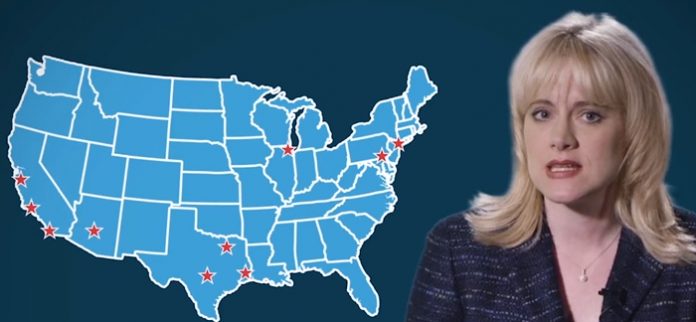When the United States created a government after the Articles of Confederation were abandoned, the Electoral College was an element added to the voting system. The goal of the Electoral College was to improve equality in voting on a national level. This would prevent one large, populous state from overly swaying a national election.
With two elections out of the last 5 (as of 2016) having an Electoral College winner not winning the popular vote, the pros and cons of this system are frequently debated. Here are the key points.
Here are the Pros of the Electoral College
1. The majority gets to express their opinion.
Candidates for President must become aware of local issues to win votes. That means they must pay attention to the needs of local communities. Campaigns establish headquarters in several states as a way to listen and make outreach efforts. Through this process, some local issues can even receive national-level attention.
2. It requires a national approach.
If a candidate could win an election by only campaigning in dense population areas, then they would. The Electoral College requires candidates to campaign nationally, not regionally, to be able to win an election.
3. It simplifies the voting process.
In the United States, the last time a third-party candidate won electoral votes from election results was 1960. By having two major party candidates compete for these votes, the actual process of voting is simplified. You either vote for one or the other, or you choose a third-party candidate that only has a slim chance of receiving electoral votes.
4. It creates a move toward centrism.
Because the campaigns are held on a national level, the Electoral College forces political parties to create campaign platforms that are not extreme. This process encourages centrism and inclusion because the platforms which are adopted are designed to reach out to a voter’s core principles.
Here are the Cons of the Electoral College
1. It gives more voting power to individual voters in smaller states.
In states with large population centers, individual voters have less power than voters in smaller states. Voters in Wyoming have 3.6 times more voting power than voters in California because of the disparity in population and how electoral votes are assigned.
2. It gives the minority a chance to rule at the expense of the majority.
In the 2016 presidential election, Hillary Clinton received over 3 million more votes than Donald Trump. The majority of the population voted in a specific way, but the structure of the Electoral College denied that result. This allows candidates to appeal to populist ideals in core supporter states as a way to swing elections in their favor.
3. It creates a system of uncertainty.
Electoral voters are pledged to a candidate within this political system. Pledging is not the same as offering a guaranteed vote. In the 2016 election, there were more faithless electors than in any other election in the past 100 years. In total, 7 different votes were cast for others than the candidate to which they were pledged. Another 3 faithless electors had their votes invalidated. If a majority of the Electoral College is not obtained, then anyone receiving an electoral vote could be named President.
4. It encourages people not to vote.
Because many states operate on a winner-takes-all foundation, voters often stay home if they feel like their vote will not count. If their preference is for a minority candidate, then they know their vote does not turn into an electoral pledge. Only local election issues can draw these folks out for a vote then and sometimes that is not enough.
5. It keeps changing.
The Electoral College distributes electoral votes based on population locations throughout the country. It changes every 10 years and is based on the number of representatives in government that state currently elects. The minimum number of electoral votes is 3. There is no maximum. That is why California currently has 55 electoral votes. The goal is to provide accurate representation. If enough people from one party move into one state in a 10-year cycle, then the entire voting process can shift.
The pros and cons of the Electoral College show us a system that was implemented to create more of a level playing field. As the U.S. has evolved, however, some feel that the time to take another look at this election system has come.
How do you feel about the electoral college?




